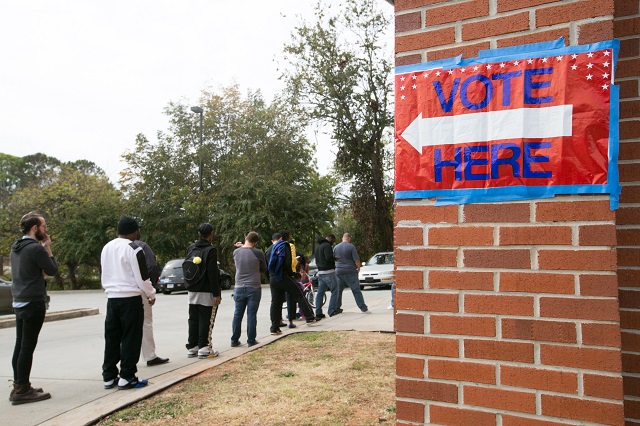
Credit: Jessica McGowan / Getty Images
How much democracy is too much? Societies have been toying with different democratic models — from how often to hold elections, to who gets to vote and what the public can vote on — for centuries. Garett Jones, an economist and former Senate staffer, argues the current setup in the U.S. desperately needs some tinkering.
Jones says the ancient Greeks, who granted brief political mandates and gave some citizens direct input on law, would be shocked by our modern American politics: “you’re letting people have power for six years?” But he believes our retreat from direct democracy has been positive, and that there’s still further to go. In his latest book, 10% Less Democracy: Why You Should Trust Elites A Little More and The Masses a Little Less, Jones argues that embracing expertise and lengthening congressional terms would make for better politics and more “courageous” politicians.
Three Takeaways:
- While an economic policy advisor and legislative aide to former Senator Orrin Hatch, a Republican from Utah, Jones learned an important lesson: if you’re hoping for politicians to be brave, don’t expect much during an election year. When politicians are waging re-election campaigns, their priorities and voting patterns shift, as base pandering and worries over their votes being weaponized loom over legislator’s heads.
- Even legislation widely criticized as being anti-democratic, such as Georgia’s new voting law, is the product of democracy-in-action. Jones, who calls the law “evil,” argues that majoritarian democracy creates tension between the concept of equal justice under the law and what the base wants, which can be in direct opposition to this ideal.
- The Supreme Court is an institution that operates in an “oligarchical” manner — and “thanks goodness for that,” Jones says. Lifetime-appointed Supreme Court justices issue major decisions on matters that impact people’s lives, such as abortion access and interracial and same-sex marriage, but are not required to seek support from citizens. Still, Jones argues that democracy can “have its revenge” through legislators’ ability to increase the size of the court.
More Reading:
- This Washington Post explainer breaks down the details of Georgia's new voting law, in the context of Georgia’s shift to the left in the 2020 presidential election.
- Expanding the Supreme Court, which Jones says is fair game, was a heady issue in the 2020 election. Brookings explores some major questions and competing proposals on how to potentially restructure the Supreme Court.
- In Foreign Policy, political scientist Sheri Berman also identifies issues with majoritarian democracy but argues that technocrats aren’t the solution; engaging more people in politics is.

